Wisdom teeth, also known as number 8 teeth, are the third molars, located at the very back of each jaw. These are the last teeth to erupt, usually appearing between the ages of 17-25, and can cause a lot of trouble when they grow crookedly or impacted.
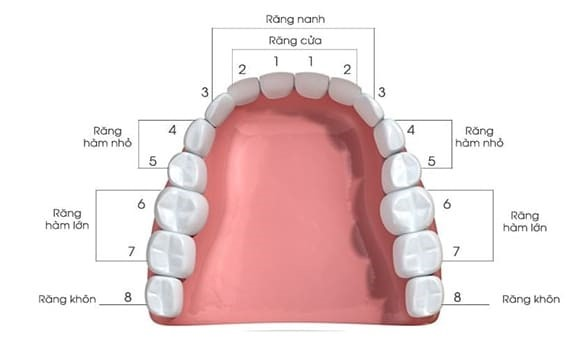
Wisdom teeth include the last four teeth to grow.
What kind of wisdom teeth are abnormal?
According to Dr. Bui Viet Hung - Deputy Head of the Dental Department, 108 Central Military Hospital, wisdom teeth are located at the four corners of the jaw, including 2 in the upper jaw (left and right) and 2 in the lower jaw (left and right).
Wisdom teeth often tend to grow abnormally, such as growing crookedly, causing pressure on other teeth, pain, and crowding.
Impacted teeth are teeth that do not emerge from the gums and are hidden in the jawbone. The teeth grow straight, in a few cases, wisdom teeth can grow straight and not cause problems.
The lower wisdom teeth are often close to the inferior alveolar nerve, which can cause numbness or nerve damage when extracted.
The upper wisdom teeth are often close to the maxillary sinus, increasing the risk of sinus communication during tooth extraction.
In addition, wisdom teeth are often covered by soft tissue (partially or completely), making cleaning difficult and easily leading to infection.
Common problems associated with wisdom teeth
According to Dr. Hung, wisdom teeth can cause many dental problems. Common ones include:
- Peri-wisdom tooth inflammation: occurs when food and bacteria get trapped under the gums covering the wisdom tooth, causing pain, swelling and infection.
- Tooth decay: due to its difficult-to-clean location, wisdom teeth are susceptible to decay or cause decay in adjacent teeth.
- Crowded teeth: when wisdom teeth grow crooked, they can cause other teeth to shift, affecting the bite.
- Cysts and bone damage: impacted wisdom teeth can create cysts, destroying surrounding bones and teeth.
When should wisdom teeth be removed?
Dr. Hung said that wisdom tooth extraction is a common decision in dentistry, especially when wisdom teeth (tooth number 8) cause oral health problems. Here are some tips for you to consider:
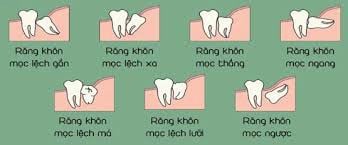
Wisdom teeth grow crookedly, hitting the adjacent teeth - Photo: BVCC
- Misaligned or impacted teeth: If wisdom teeth grow misaligned, push against adjacent teeth, or become trapped under the gums, they can cause pain, infection, and damage to adjacent teeth.
- Gingivitis or infection: Wisdom teeth are often difficult to clean, easily causing gingivitis, swelling, pain or infection.
- Cyst formation or bone damage: Some wisdom teeth that do not grow straight can form cysts, damaging the jawbone or adjacent teeth.
- Not enough room to grow: If the jaw does not have enough space, crowded wisdom teeth can cause other teeth to shift or cause pain.
"Wisdom teeth should not be removed when they grow straight, do not cause pain or pressure on other teeth. There are no signs of infection, tooth decay, or negative effects on oral health. You can clean your wisdom teeth easily and regularly," Dr. Hung recommends.
According to this expert, the best age to extract wisdom teeth is usually between 18-25 years old. This is the time when wisdom teeth are in the stage of complete root formation but have not yet fully developed.
"At this age, the tooth roots are not yet deeply attached to the jawbone, making tooth extraction easier and reducing the risk of bone damage.
In addition, in young people, the ability to heal is faster, there are fewer complications and a lower risk of infection than in older people. Early tooth extraction helps avoid problems such as wisdom teeth growing crookedly, crowded, cavities or infections.
The jawbone at this age is still relatively soft, making tooth extraction less painful and less likely to affect surrounding structures.
For people over 25 years old, tooth extraction is still possible but is often more complicated. The tooth root has fully developed and is firmly attached to the jaw bone, making extraction more difficult and recovery time longer," said Dr. Hung.
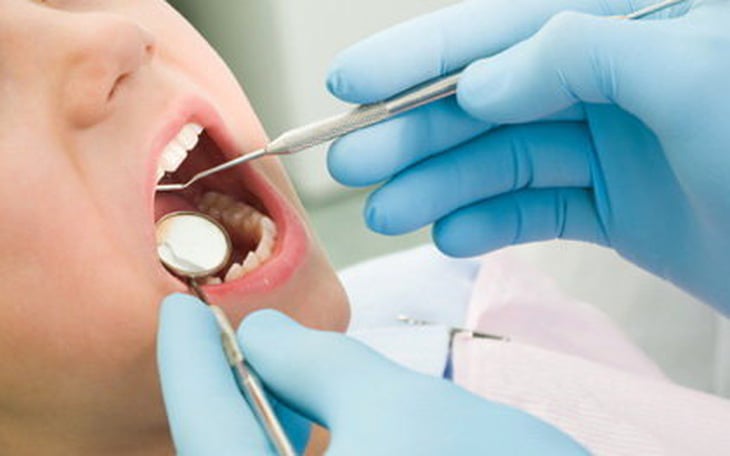 Should wisdom teeth be removed?
Should wisdom teeth be removed?Source: https://tuoitre.vn/rang-khon-khi-nao-can-nho-nen-nho-o-tuoi-nao-20250207125353725.htm


![[Photo] Prime Minister Pham Minh Chinh chairs conference to review the implementation of Resolution No. 18-NQ/TW](https://vstatic.vietnam.vn/vietnam/resource/IMAGE/2025/4/14/dcdb99e706e9448fb3fe81fec9cde410)
![[Photo] Ceremony to welcome General Secretary and President of China Xi Jinping on State visit to Vietnam](https://vstatic.vietnam.vn/vietnam/resource/IMAGE/2025/4/14/5318f8c5aa8540d28a5a65b0a1f70959)



![[Photo] Hanoi people warmly welcome Chinese General Secretary and President Xi Jinping on his State visit to Vietnam](https://vstatic.vietnam.vn/vietnam/resource/IMAGE/2025/4/14/d6ac6588b9324603b1c48a9df14d620c)


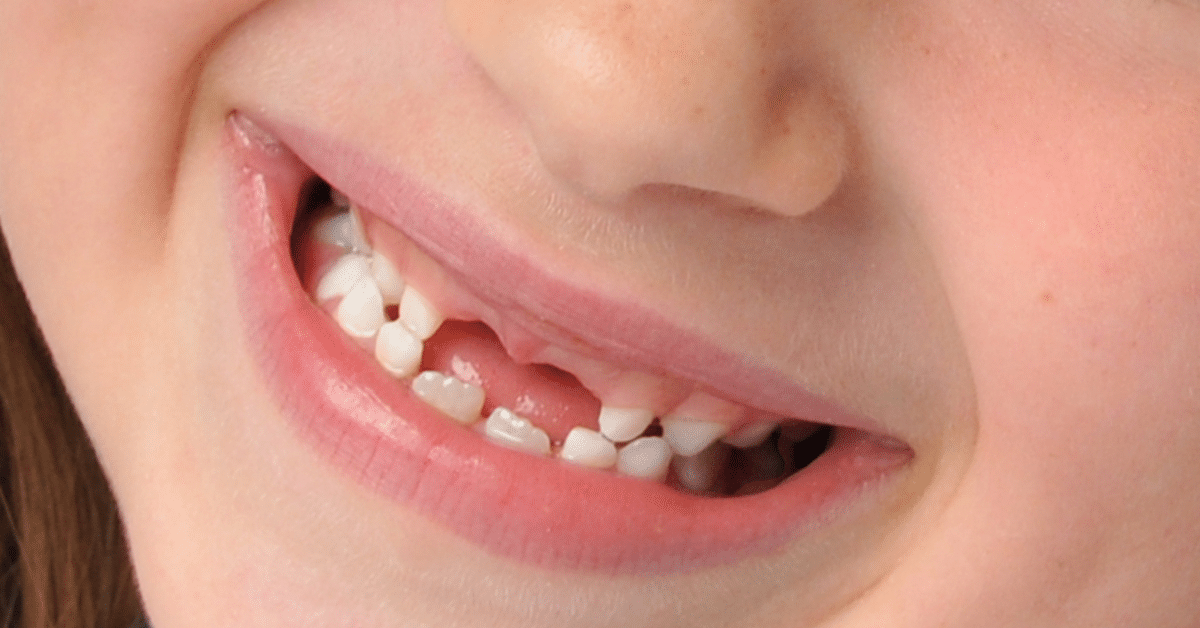
















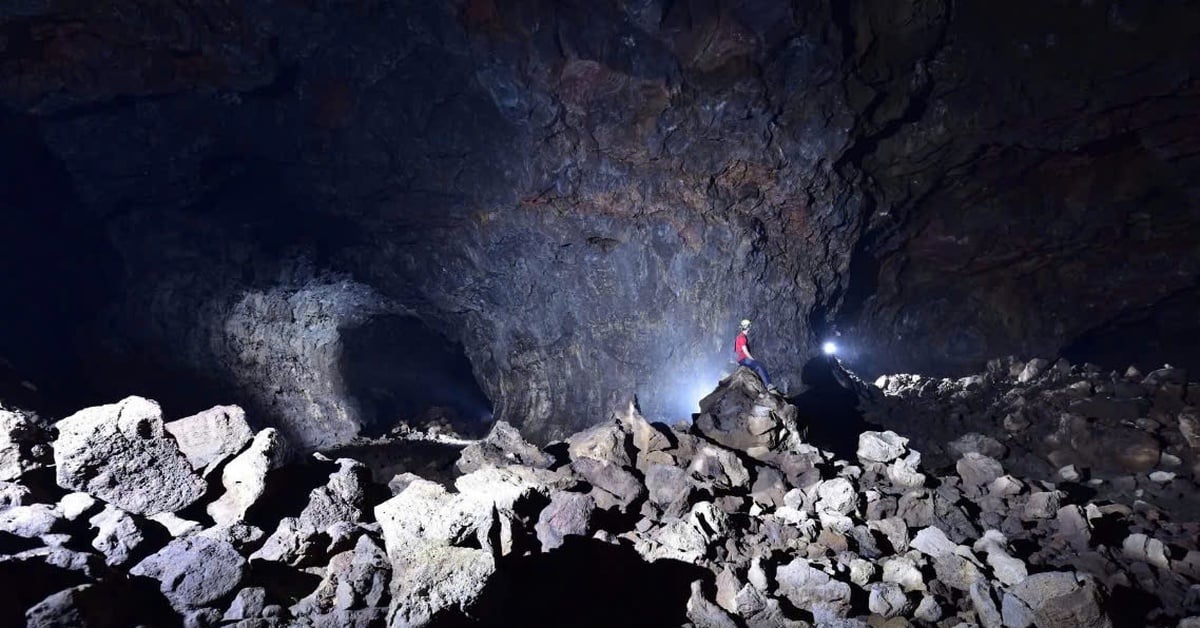






























































Comment (0)